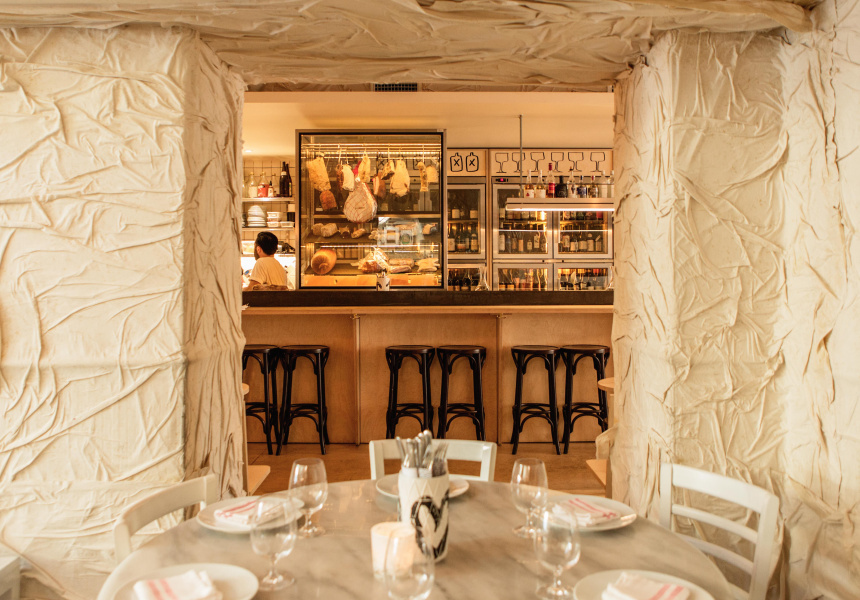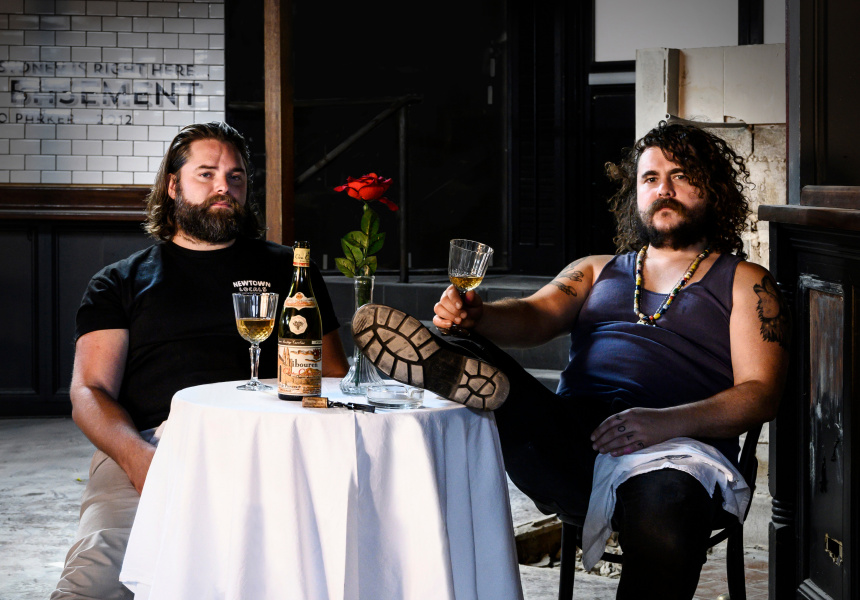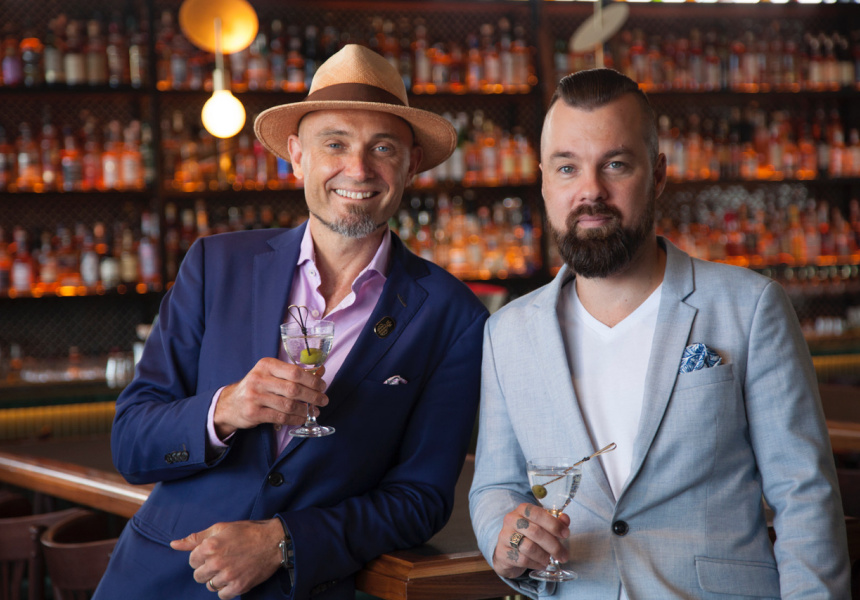A German historian may have summed it up best.
The weirdest part of living through the #COVID19 pandemic is this strange mixture of normalcy and emergency that we’re all experiencing. I constantly feel like I’m either over- or underreacting, or really both at the exact same time. It’s surreal.
— Thomas Zimmer (@tzimmer_history) March 12, 2020
The coronavirus pandemic is rousing all sorts of emotions, but none so vivid as uncertainty. There’s been much talk of using isolation to “flatten the curve” and slow the infection rate to prevent overwhelming the healthcare system. But how much should we be isolating?
We think you might like Access. For $12 a month, join our membership program to stay in the know.
SIGN UPOfficially the government is okay with groups of up to 100 people gathering indoors. It’s yet to institute the kind of federal lockdowns happening in Europe and Asia, where entire populations are in mandatory self-isolation and all restaurants and other public spaces are closed.
In Australia, public opinion is fractured. Broadsheet’s 12 editors have been working from home since Tuesday, but even within this small group, there’s no consensus about isolation. On Wednesday night, two editors went out for dinner (separately) to support a hospitality industry facing its biggest existential threat ever. Another editor, who comes from a family of doctors and has high-risk family members, is opposed to any non-essential person-to-person contact, such as picking up takeaway from a restaurant. The rest of us are somewhere in the middle.
Though we could probably learn something from Singapore, it’s impossible to say who or what is right. And the situation gets particularly knotty when you think that 700,000 hospitality workers rely on the rest of us not staying home. Our takeaway coffee, our round of beers, our gig, our dinner – that’s their groceries, their rent, their livelihood. And as of this week, it’s gone. Restaurants, cafes and bars are already closing. Most – not some, most – will never come back.
“This is the hardest day in my life, full stop. This is devastating, absolutely devastating,” says Jake Smyth, co-owner of Mary’s, The Lansdowne and The Unicorn, his voice cracking audibly over the phone.
Smyth and his business partner Kenny Graham have spent the past two days laying off 150 of their 240 employees. “We’ve done everything we can to keep our staff afloat, but we have no casual staff going forward,” he says. “Where do they go, what do they do, other than Centrelink? It’s such an inadequate response from this government.”
Brent Savage, who employs 100 people across his restaurants Yellow, Cirrus, Monopole and Bentley, is also furious.
“If the government truly locked everyone out of our restaurants, that would be a better scenario than doing this. They’re letting us bleed,” he says. “They’re telling people not to go to restaurants, not to go out, not be close to people. But the reason they’re not locking anyone out of restaurants is, they don’t want to take responsibility for it. That’s how it feels.”
“We’re here, we’re open because we’ve been told to stay open,” says Chris Lucas, owner of Surry Hills Thai restaurant Chin Chin. Yesterday the restaurant and its Melbourne counterpart began taking bookings for the first time in nearly 10 years of trade.
“There’s a lot of panic, there’s a lot of misinformation, which is effectively shutting down the industry,” Lucas says. “And it’s contrary to what the government is saying. The government is saying, there is no clear, mandated shutdown as of yesterday [March 18] and that we’re able to trade within the limitations they’ve provided.”
But that uncertainty – that mixed messaging from government, health departments, media, social media, friends and family – has seen trade at restaurants, cafes and bars across Sydney drop off a cliff this week. The government may not have imposed a shutdown, but the public effectively has.
“We’re open for business, we practice safe hygiene standards, above norm,” says Maurice Terzini, who employs 500 people across Icebergs, Bondi Beach Public Bar, The Dolphin Hotel and Cicciabella. “For us it’s been longer than two weeks since we implemented hospital-grade cleaning and sanitisers in all our entrances and so on. We’ve been trying to act responsibly.”
“We were pretty early on this and started negotiating with landlords and putting procedures in place weeks ago,” says Sven Almenning, owner of cocktail bars Eau De Vie, Mjølner, Nick & Nora’s and Kiss Kiss Bang Bang. “We have stringent cleaning procedures, we have cleaners who come and sanitise the venues, we have sanitisers in venue. We’re a safe environment to be in, as much as we can control.”
Almenning himself is at high risk to the coronavirus. “I think my age bracket, 45, is a 0.4 mortality rate if I get the virus,” he says. “But as a diabetic, I’m pretty much on par with 80-year-olds. It’s a 12 per cent chance, I think I read. I’m restricting my movements and taking personal responsibility for myself.
“It’s difficult. I think there’s going to be a lot of people who still want to go out, have a drink and enjoy some food. If they are feeling healthy and haven’t been in touch with any confirmed cases of Covid-19, we want to be there for them.”
That’s Lucas’s message too. “I’m reiterating what the prime minister said, which is: go out and conduct your life as normal. Go out and support your local bakery, your local cafe, your local restaurant, you local pharmacy, your local retail store. Try and do the social distancing, take care of your personal hygiene. But life cannot come to an end.”
“Our customers are probably also in really tricky positions where they’ve been laid off work,” Savage says. “Those that can, go out and enjoy the time and enjoy being at the restaurants you always have. We need it more than ever. Get out and support your local restaurant. Keep eating out, or using the take-out facilities that everyone’s come up with.”
“We’re one of the largest industries in Australia,” Terzini says. “I was reading an article in The Washington Post. They were saying 75 per cent of restaurants won’t reopen in the States. They [the American restaurateurs] are saying, ‘We’re all going to be looking for government support if we’re forced to close down.’
“If [Australian] restaurants are shut down – and that looks inevitable – what happens if 75 per cent of us can’t recover from it? The unemployment rate’s going to go through the fucking roof.”
“Do I agree with the [distancing] measures?” Smyth says. “Yeah, I do. Right now, there is not a conversation that’s more important than physical distancing and the mandated physical distancing of people. But where the fuck is the support? It’s really easy to say, ‘You can’t congregate in groups of 100.’ But what does that mean to this massive entertainment and hospitality industry?
“The last time we had a recession in this country, we didn’t have a hospitality and entertainment sector to speak of. The percentage of GDP the entertainment and hospitality sector represents compared to 1988, it’s just not even worth conversing about.
“In typical me and Mary’s fashion, we’re doing everything to not just keep the lights on, but keep the fucking hope alive and keep the fucking anger burning and keep the fucking love firing.”
For more about Australia's restaurant scene in the age of coronavirus, read “Apocalypse Now”: A Special Feature on How Coronavirus is Affecting Restaurants Around the Country.
Covid-19 (coronavirus) means we're living in unprecedented and uncertain times. Mass public gatherings are banned and minimal social contact is recommended. If you have concerns about visiting businesses or public spaces, and questions about quarantine and self-isolation, or coronavirus testing, check out the latest updates from NSW Health.



